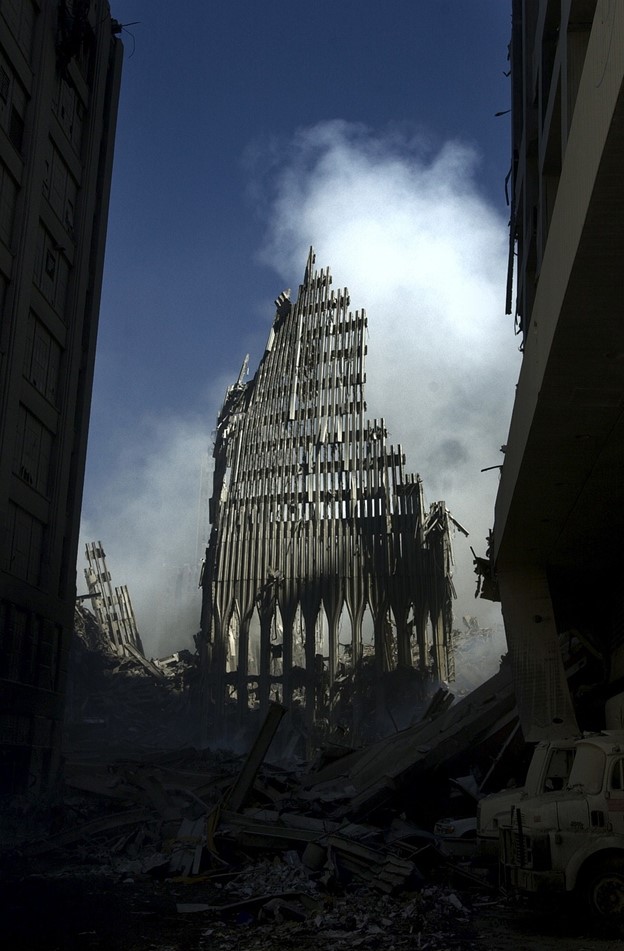The New York Analysis of Policy and Government provides key excerpts from the State Department’s Country Reports on Terrorism .
Following the September 11, 2001, attacks on the World Trade Center and the Pentagon, the United States established a strong and sophisticated counterterrorism enterprise to reduce the threat of large-scale terrorist attacks on the homeland. More than 20 years later, the terrorist threats we currently face are more ideologically and geographically diffuse. At the same time, the United States is confronting a diverse and dynamic range of other national security challenges, including strategic competition, cybersecurity threats, and climate change. To tackle evolving and emerging terrorist threats within the context of broader national security priorities, the United States inaugurated a new counterterrorism policy, shifting from a U.S.-led, military-centric approach to one that prioritizes diplomacy, partner capacity building, and prevention. Striking a new balance between military and civilian counterterrorism efforts recognizes the need to deploy the full range of counterterrorism (CT) tools and ensures a more sustainable whole-of-government and whole-of-society CT approach with allies and partners around the world.
In 2022, under this new framework, the United States and its partners continued to succeed against terrorist organizations, bolstering diplomatic and multilateral engagements and partner capacity building efforts. Through U.S. leadership, the Global Coalition to Defeat ISIS (Defeat-ISIS) raised more than $440 million in stabilization pledges – including a U.S. pledge of $107 million – to support infrastructure and other critical projects in Iraq and northeastern Syria. In November the United States and the United Kingdom co-hosted a donors’ conference with 14 governments, and with numerous UN and humanitarian organizations, to discuss steps to improve the security and humanitarian conditions at the al-Hol displaced persons camp in northeast Syria.
The Department of State led Defeat-ISIS’s renewed focus on countering ISIS branches across Africa. In 2022 the Coalition welcomed Benin as its 85th member and 13th member from sub-Saharan Africa. In March, Defeat-ISIS’s Africa Focus Group (AFFG), established in 2021 to address the growing ISIS threat in sub-Saharan Africa, convened its first working-level meeting in Rome and met again in May on the margins of the Defeat-ISIS ministerial. In October the AFFG co-chairs of Morocco, Niger, Italy, and the United States met in Niamey to identify programmatic gaps and deconflict existing partner efforts in the region. The AFFG will continue to utilize existing coordination mechanisms and enhance African members’ counterterrorism capacities.
In May the Department of State, in partnership with the Department of Justice, launched the first-ever Counterterrorism Law Enforcement Forum (CTLEF) to improve information sharing and international coordination to counter racially or ethnically motivated violent extremism (REMVE). The CTLEF, which was co-hosted by the United States and the Government of Germany, brought more than 100 criminal justice practitioners, financial regulators, and security professionals from over 30 countries and multilateral organizations to Berlin. The inaugural meeting increased the United States and our partners’ collective understanding of REMVE networks, groups, and individuals, including transnational links between and among REMVE actors.
Despite key counterterrorism successes, terrorist groups remained resilient and determined to attack. ISIS maintained an enduring global enterprise, promoting a large-scale terrorism campaign across the Middle East, Africa, and Asia. While the death of ISIS leader Abu Ibrahim al-Hashimi al-Qurayshi in February marked an important milestone against the terrorist group, ISIS remained capable of conducting large-scale attacks. In 2022, ISIS maintained a significant underground operational structure and conducted terrorist operations throughout Iraq and Syria. An estimated 10,000 ISIS fighters, including 1,800 Iraqis and 2,000 ISIS fighters from outside Syria and Iraq, also remained in detention facilities controlled by the Syrian Democratic Forces. Additionally, 18,000 Syrians, 26,000 Iraqis, and roughly 10,000 third-country nationals from more than 60 countries remain in al-Hol and Roj displaced persons camps in northeast Syria. In West Africa, ISIS affiliates increasingly expanded across borders and coordinated asymmetric attacks, including a July prison break near the U.S. Embassy in Abuja, Nigeria. ISIS expanded its recruitment and operations across key locales, growing its global network to approximately 20 branches and affiliates.
In 2022, al-Qa’ida and its affiliates remained resilient and determined, even following the death of leader Ayman al-Zawahiri in July. Senior al-Qa’ida leaders continued to oversee a global network to target the United States and U.S. interests, particularly in Africa and the Middle East. In East Africa, al-Shabaab (AS) sustained de facto control over significant portions of south-central Somalia. AS also maintained its capability to conduct high-profile attacks in the region, including against U.S. citizens and infrastructure, and aspired to coordinate attacks against the U.S. homeland and Europe. In West Africa, Jama’at Nusrat al-Islam wal-Muslimin (JNIM) intensified attacks in the Sahel, increasingly threatening capital cities and U.S. embassies in the region, and expanded operations in the northern border regions of Coastal West Africa.
The Report concludes tomorrow
Illustration: Pixabay
